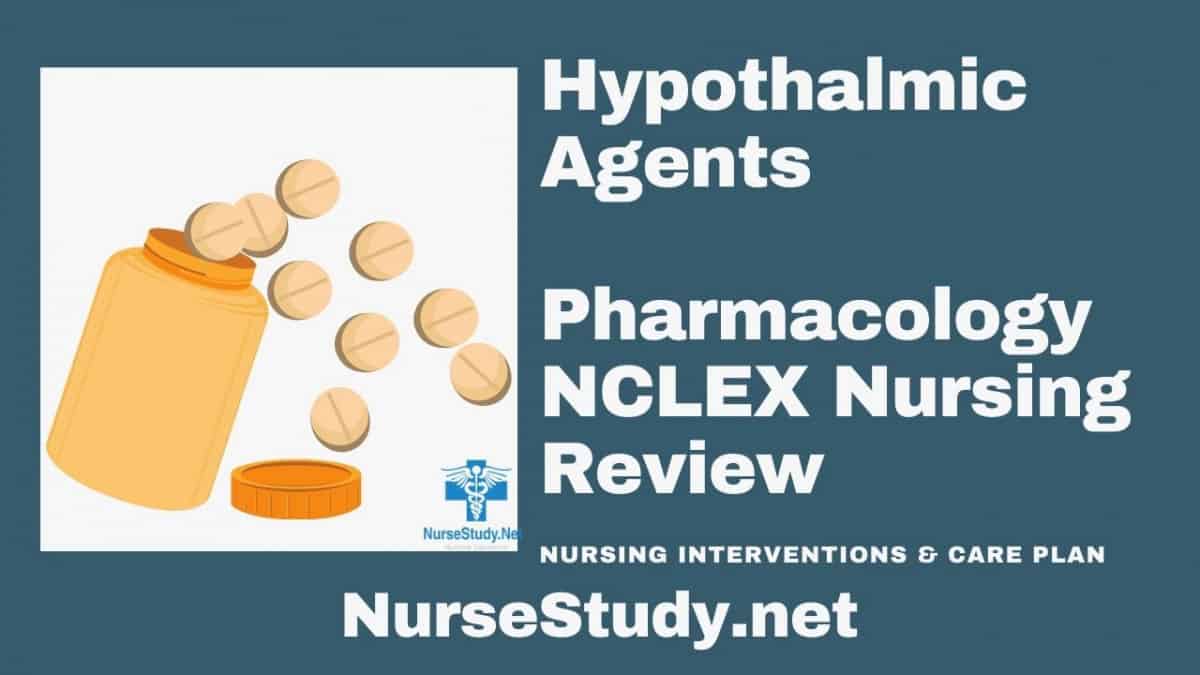Hypothalamic agents are medications that affect the hypothalamus and its hormone production. These drugs play a crucial role in treating various endocrine disorders and maintaining hormonal balance.
Generic names: Gonadorelin, Goserelin, Leuprolide, Nafarelin
Brand names: Lutrepulse, Zoladex, Lupron, Synarel
Pharmacologic class: Gonadotropin-releasing hormone (GnRH) agonists and antagonists
Therapeutic class: Hormone modulators
Mechanism of action: Hypothalamic agents work by either stimulating or inhibiting the release of gonadotropin-releasing hormone (GnRH). This affects the production of follicle-stimulating hormone (FSH) and luteinizing hormone (LH) from the pituitary gland.
Indications for use: Endometriosis, uterine fibroids, precocious puberty, prostate cancer, fertility treatments, hormone-dependent conditions
Precautions and contraindications: Pregnancy, undiagnosed vaginal bleeding, hormone-sensitive tumors, severe liver disease, osteoporosis risk
Drug Interactions
- Hormonal contraceptives may decrease the effectiveness
- Antiandrogens can increase the risk of bone loss
- Medications affecting pituitary function
- QT-prolonging medications require careful monitoring
Adverse Effects
- Hot flashes and sweating
- Mood changes and depression
- Decreased bone density
- Headache and fatigue
- Initial surge in hormone levels (“flare effect”)
- Sexual dysfunction
- Changes in blood pressure
- Weight changes
- Injection site reactions
Administration Considerations
Available preparations: Injections (subcutaneous, intramuscular), nasal sprays, implants
Nursing Considerations for Hypothalamic Agents
Related Nursing Diagnoses
- Risk for altered hormone levels
- Disturbed body image
- Risk for infection at injection sites
- Sexual dysfunction
- Knowledge deficit regarding the medication regimen
Nursing Assessment
- Obtain a comprehensive endocrine history
- Assess for contraindications and drug allergies
- Monitor vital signs and weight
- Evaluate bone density scores
- Screen for depression and mood changes
- Check injection sites for reactions
- Monitor hormone levels through lab work
Nursing Interventions
- Administer medications at prescribed times to maintain therapeutic levels
- Rotate injection sites appropriately
- Monitor for signs of hormone fluctuations
- Provide emotional support during treatment
- Track bone density measurements
- Implement fall prevention strategies
- Monitor for signs of infection at injection sites
Patient Teaching Associated with Hypothalamic Agents
- Explain the importance of maintaining the medication schedule
- Teach proper self-injection techniques if applicable
- Discuss potential side effects and management strategies
- Emphasize the importance of regular bone density screenings
- Review signs and symptoms requiring immediate medical attention
- Provide guidance on lifestyle modifications to support treatment
- Explain the importance of follow-up appointments
- Discuss fertility implications and contraception needs
- Teach proper storage and handling of medications
- Review symptoms of hormone fluctuations
This is not an all-inclusive list of possible drug interactions, adverse effects, precautions, nursing considerations, or patient instructions. Please consult further with a pharmacist for complete information.
References
- Dimitri P. Treatment of Acquired Hypothalamic Obesity: Now and the Future. Front Endocrinol (Lausanne). 2022 Apr 6;13:846880. doi: 10.3389/fendo.2022.846880. PMID: 35464063; PMCID: PMC9019363.
- López M. Hypothalamic AMPK as a possible target for energy balance-related diseases. Trends Pharmacol Sci. 2022 Jul;43(7):546-556. doi: 10.1016/j.tips.2022.04.007. Epub 2022 May 12. PMID: 35570061.
- Shoemaker AH, Tamaroff J. Approach to the Patient With Hypothalamic Obesity. J Clin Endocrinol Metab. 2023 Apr 13;108(5):1236-1242. doi: 10.1210/clinem/dgac678. PMID: 36413492; PMCID: PMC10306088.
